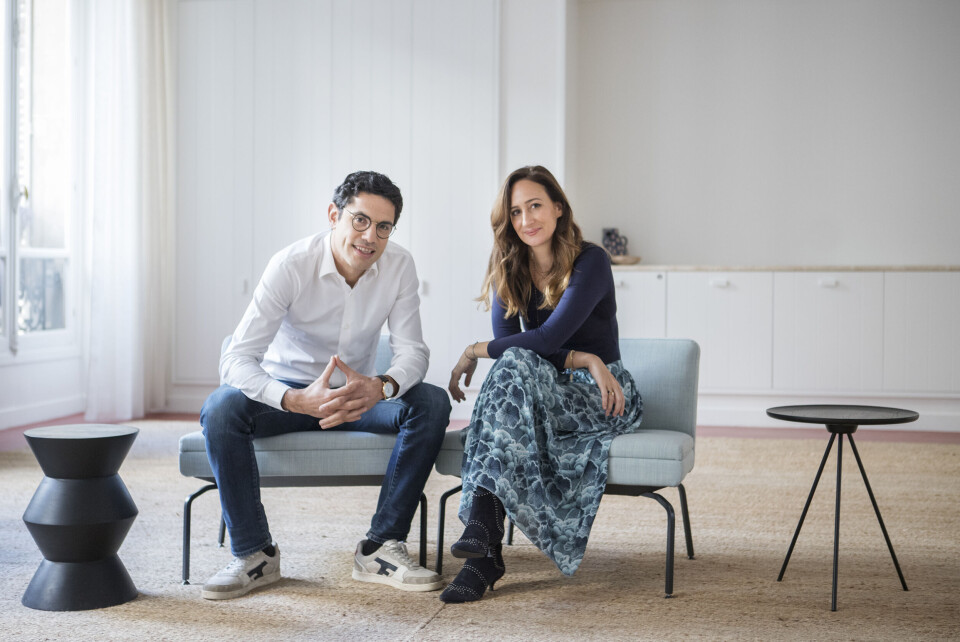-
France considers linking health reimbursements to income to curb deficit
State auditors urge reform as government faces €15.3bn shortfall in 2024
-
French Google website google.fr will soon be replaced
Technology advancements have made local searches obsolete
-
QR code to replace paper instructions for 100 medicines in France in new trial
Paracetamol and cholesterol medication to be included in scheme that launches this autumn
French cancer app to help with side-effects and treatment information
The free app has been designed with doctors and cancer specialists to support patients and is available in English

An app to help cancer patients that launched in September has raised €40million funding while awaiting approval from health authorities.
Résilience encourages patients to provide information about themselves and the type of cancer they have.
They can then access detailed articles on their likely treatment path, medicines which will be used, and common side- effects. There is an English-language option.
Help with pain and discomfort is also given, either through hypnosis or meditation techniques, plus exercise pointers which can speed up the recovery process.
Read more: 250 centres across France offer relief for chronic pain sufferers
There are also video interviews with cancer specialists and testimonial podcasts.
The app was developed by two stars of the French start-up community, Céline Lazorthes and Jonathan Benhamou.
The two entrepreneurs did not start in healthcare
They worked with the Paris-based Gustave Roussy Institute, widely recognised as one of the best cancer research establishments in the world.
Ms Lazorthes is co-founder of the payments company Leetchi, and also founded Mangopay, which specialises in multi-currency payments and was bought in 2015 by Crédit Mutuel Arkéa. Mr Benhamou is the founder of PeopleDoc, a software tool for managing staff pay and employee documents in small and medium-sized businesses.
Ms Lazorthes told The Connexion that her leap from finance to medicine was more logical than it might seem.
“I see myself as an entrepreneur first of all, and my success in finance apps such as Leetchi and Mangopay came from the business opportunities, not my financial genius,” she said.
“I was actually very poor in finance at my business school – only getting seven out of 20 and having to push hard to get another chance at passing.”
Having grown up in a family of doctors, stretching all the way back to her great-grand-father, she feels at home in a medical environment. “The values of having free, good quality healthcare were something I grew up with.
“When looking for a new entrepreneurial challenge, I was drawn to healthcare, which is an area where new technology can have a huge impact.
“There is a bit of altruism in there too,” she says.
“We are sure that Résilience can help people, and that must be a good thing.”
Focus on breast cancer first
The app, which is available free to patients with Apple and Android phones, is concentrating solely on breast cancer, which is the number one cancer in France in terms of patient numbers, at its launch.
Read more: Breast cancer treatment Trodelvy is now available in France
As well as providing treatment information, it asks patients to fill out a daily questionnaire, which is checked by algorithms. Any unusual responses prompt an alert to a nurse, who will get in touch to check up on the patient.
All of the scientific information available via the app has been prepared, reviewed and validated by a team of 30 multidisciplinary doctors: oncologists, radiotherapists, gynaecologists, psychologists, dieticians, nutritionists and surgeons. The content is personalised according to the patient’s profile, medical data and preferences.
Particular attention is paid to supportive care, which can improve quality of life. All content relating to this has been reviewed and certified by the Association Francophone des Soins Oncologiques de Support (AFSOS).
Ms Lazorthes said the app is particularly beneficial to patients on hormone treatment as part of their breast cancer recovery, where medication can have unwelcome side-effects, such as hot flushes.
“Without information to hand, many just stop, but if they find out it is normal and have help on how to cope, they continue to the end of the treatment,” she said.
Reduced side-effects and hospitalisations
A recent study by the Gustave Roussy cancer campus in Paris shows how useful digital tracking can be. Results from a sample of 609 patients included a reduction in severe treatment-related side-effects, which fell from 36% to 27%.
There was also a drop in the number of hospitalisations, down from 22% to 15%, and a reduction in the amount of time spent in hospital, which fell from 4.4 to 2.8 days.
Ms Lazorthes said the €40million raised so far will be used to get the app fully operational in as many parts of France as possible.
The company’s funding model depends on the app being approved by the French health system and its use being covered by state CPAMs and mutuelle insurance.
“Logically, this should not be a problem because all the studies show that the treatment of patients using the app costs less and is more effective than existing care,” said Ms Lazorthes.
“But although the law allowing payment for tele-medicine came into effect in January, the decrees from the health ministry on how things will work have not yet been published.
“We hope that things will be pushed through and the system to pay us will be in place later this year, or early next year at the latest.”
Résilience is not the only French company working in this sector.
Cureety has developed an app giving cancer clinics tools and services to help them improve the patient’s journey.
It raised €5million and has a partnership with the UK/Swiss pharmaceutical giant AstraZeneca.
Related articles
Colorectal cancer tests now available free at home in France
World Cancer Day: France encourages three regular cancer screenings
French scientists make breakthrough cancer treatment discovery
























